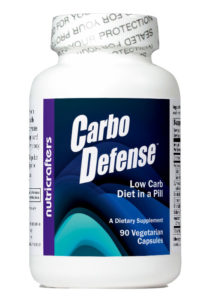Research published in Cancer Epidemiology, Biomarkers and Prevention concludes that there is a strong link between metabolic syndrome and the risk of developing postmenopausal breast cancer.
Out of 4,888 women with baseline measurements for metabolic syndrome, 165 cases of breast cancer were diagnosed during an eight-year follow-up period. Initially there didn’t appear to be a strong link between metabolic syndrome and risk of breast cancer. But over time the researchers found a significant association due primarily to high blood glucose, triglycerides and blood pressure.1
Another study recently done in Italy came to the same conclusion. After 13½ years of follow-up, metabolic syndrome was present in 29.8% of the women studied and 163 of them developed breast cancer. This study also indicates that metabolic syndrome is an important risk factor for breast cancer in postmenopausal women. The researchers suggest that prevention or reversal of metabolic syndrome by life-style changes may be effective in preventing breast cancer in postmenopausal women.2
Cognitive impairment
Other study indicates that metabolic syndrome also increases your risk of developing cognitive impairment. A four-year study of nearly 5,000 women (average age of 66) with no cognitive impairment, found that of the 10% that had metabolic syndrome, 7% developed cognitive impairment compared with the 4% who did not have metabolic syndrome. The researchers concluded that the risk of developing cognitive impairment went up for each additional metabolic syndrome component present, such as high blood pressure, high triglycerides, etc.3
What is Metabolic Syndrome?
Metabolic syndrome is a group of risk factors that predisposes one to heart disease, diabetes, and, now we know, breast cancer and cognitive impairment. The risk factors include: abdominal obesity, glucose abnormalities (high levels of glucose and impaired glucose tolerance), high blood pressure, low levels of HDL (the “good cholesterol”), high levels of LDL (the “bad cholesterol”), and high triglycerides.
According to the National Heart Lung and Blood Institute (NHLBI) almost 25% (about 45 million) of all Americans have metabolic syndrome. The condition is growing at such an alarming rate due to increasing obesity that it may overtake smoking as the leading risk for heart disease.4
You can prevent and reverse metabolic syndrome. Here’s how:
- Maintain a healthy weight
- Exercise regularly
- Boost your intake of vitamin D. According to findings published in the Journal of Clinical Lipidology, the lowest levels of vitamin D were associated with a 31% prevalence of metabolic syndrome, compared to only 10% for people with the highest average levels.5
Natural supplements proven to help support healthy insulin production and blood glucose levels—major concerns in controlling and reversing metabolic syndrome:
- Gymnema sylvestre, is an extract from a vine that grows in the rain forests of India. It has been used for thousands of years in Ayurvedic medicine to regular glucose metabolism, and recently it has been proven to help regulate insulin production—both major concerns in metabolic syndrome and diabetes.67
- Bitter melon (Momordica charantia) has been shown to lower blood glucose in newly diagnosed adult diabetics by as much as 20-30% before any other pharmaceutical treatment has been started.8
- Banaba leaf extract (Lagerstroemia speciosa L.) contains carsolic acid that has a strong blood glucose lowering effect.9
- Cinnamon supports healthy blood sugar levels and helps normalize insulin resistance.10

References
- Kabat GC, Kim M, Chlebowski RT, Khandekar J, Ko MG, McTiernan A, Neuhouser ML, Parker DR, Shikany JM, Stefanick ML, Thomson CA, Rohan TE. A longitudinal study of the metabolic syndrome and risk of postmenopausal breast cancer. Cancer Epidemiol Biomarkers Prev. 2009 Jul;18(7):2046-53. Epub 2009 Jun 30.
- Agnoli C, Berrino F, Abagnato CA, Muti P, Panico S, Crosignani P, Krogh V Metabolic syndrome and postmenopausal breast cancer in the ORDET cohort: A nested case-control study. Nutr Metab Cardiovasc Dis. 2009 Apr 8. [Epub ahead of print] .
- Yaffe et al. The Metabolic Syndrome and Development of Cognitive Impairment Among Older Women. Archives of Neurology, 2009; 66 (3): 324 DOI: 10.1001/archneurol.2008.566
- National Heart Lung and Blood Institute, National Institutes of Health, What is Metabolic Syndrome?
- Maki, K.C., Rubin, M.R., Wong, L.G., McManus, J.F., Jensen, C.D., Marshall, J.W., Lawless, A. “Serum 25-Hydroxyvitamin D is Independently Associated with High Density Lipoprotein Cholesterol and the Metabolic Syndrome in Men and Women.”Journal of Clinical Lipidology Published online ahead of print, doi: 10.1016/j.jacl.2009.07.003
- Wei JH, Zhen HS, Qiu Q, Chen J, Zhou F. [Experimental [corrected] study of hypoglycemic activity of conduritol A of stems of Gymnema sylvestre] Zhongguo Zhong Yao Za Zhi. 2008 Dec;33(24):2961.
- Liu B, Asare-Anane H, Al-Romaiyan A, Huang G, Amiel SA, Jones PM, Persaud SJ. Characterisation of the insulinotropic activity of an aqueous extract of Gymnema sylvestre in mouse beta-cells and human islets of Langerhans. Cell Physiol Biochem.2009;23(1-3):125-32. Epub 2009 Feb 18.
- Shih CC, Lin CH, Lin WL. Effects of Momordica charantia on insulin resistance and visceral obesity in mice on high-fat diet.Diabetes Res Clin Pract. 2008 Aug;81(2):134-43. Epub 2008 Jun 11.
- Klein G et al. Antidiabetes and anti-obesity activity of Lagerstroemia speciosa. Evid Based Complement Alternat Med. 2007 Dec;4(4):401-7.
- Solomon TP, Blannin AK. Changes in glucose tolerance and insulin sensitivity following 2 weeks of daily cinnamon ingestion in healthy humans. Eur J Appl Physiol. 2009 Apr;105(6):969-76. Epub 2009 Jan 22.
